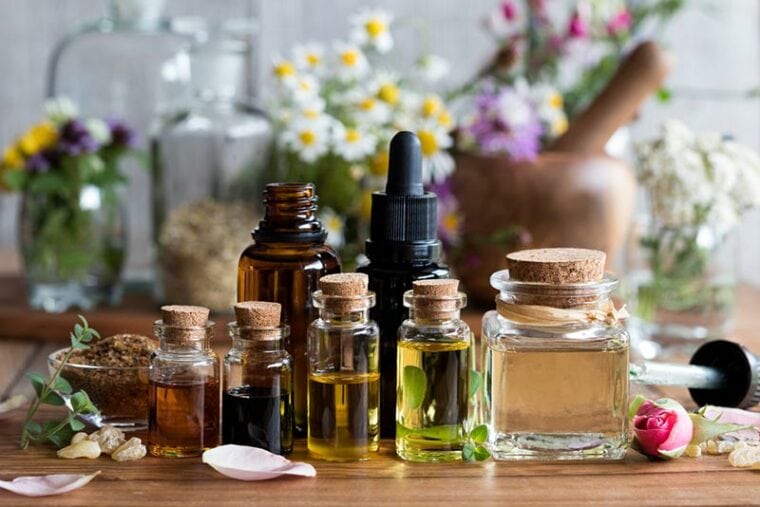
Many essential oils are poisonous for cats. Essential oils contain chemicals that can be consumed or absorbed through the skin, and they are difficult for cats to process due to a lack of proper enzymes to metabolize them.
If a cat has been exposed to too many essential oils, they may have trouble breathing or walking properly. They may also experience lethargy, redness or burning of the mouth, vomiting, drooling, and muscle tremors. If your cat displays any of these signs, reach out to your veterinarian immediately.
Keep reading below to learn more about the worst essential oils for cats.
The 16 Worst Essential Oils for Cats
1. Bergamot
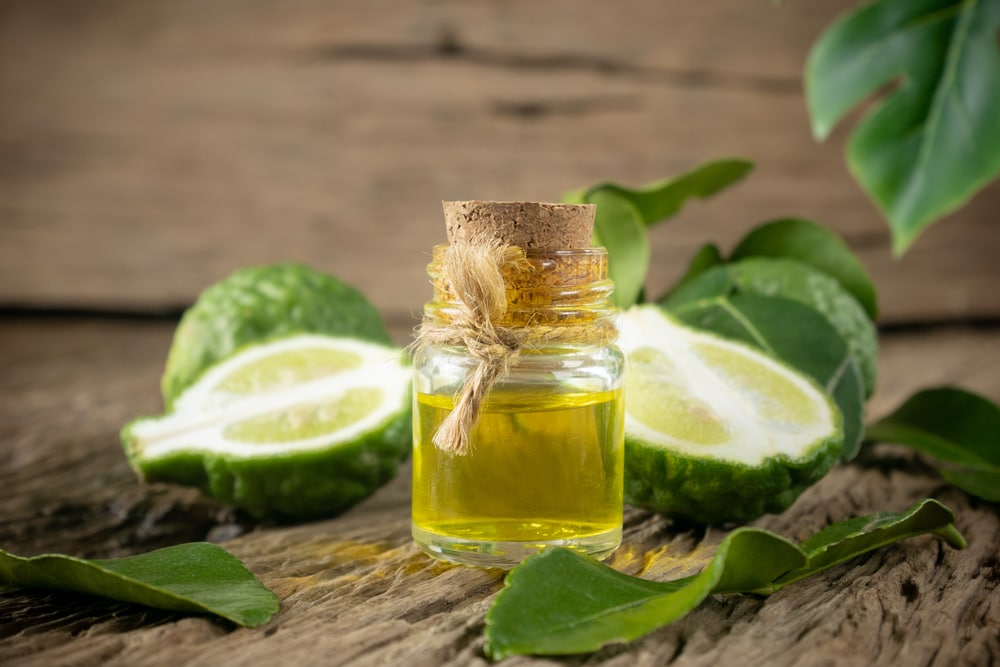
Bergamot is a citrus fruit. The essential oils are extracted from the peel and, when combined with the juice, are used to make medicines. Bergamot oil is frequently used for aromatherapy, which is believed to reduce anxiety and promote focus. However, there is little evidence to support this.
If you use bergamot oil for any reason in your home, be sure to keep it out of reach of your cat. Even a fine mist of bergamot oil over your cat’s coat can cause problems.
2. Cinnamon
Cinnamon oil has benefits for human health and beauty. It can be used as an anti-bacterial and as a skin moisturizer. It is also commonly used to flavor food or provide a pleasant scent to a room. However, when it comes to cats, cinnamon can be dangerous in any form.
Exposure to cinnamon oil can lead to signs of essential oil poisoning, but cinnamon in other forms can also cause health problems. If a cat is suffering from cinnamon toxicity, it may experience low blood sugar, liver damage, and allergic reactions.
3. Cloves
The Clove is a popular spice that is derived from the dried flower buds of a clove tree. It is beneficial since the oils, dried flowers, stems, and leaves can be used to make medicine, minimize pain, and combat infections. This effectiveness comes from a chemical called eugenol.
However, eugenol is toxic to cats. Exposure to eugenols can lead to stumbling, vomiting, or trembling in cats. Seizures are another frightening possibility. When using cloves, it is best to keep your cat far away.
4. Eucalyptus

Eucalyptus oil is sometimes referred to as blue gum, blue mallee, or blue mallee oil. Whether it is in plant or oil form, eucalyptus is dangerous for your cat.
If your cat consumes eucalyptus, it may experience confusion, excessive drooling, vomiting, diarrhea, and even seizures. If you suspect your cat has been exposed to eucalyptus, take them to the vet immediately. Do not wait for signs to appear since the poisoning can quickly advance to the point of fatality.
5. Pennyroyal
Pennyroyal is a plant, and pennyroyal oil is extracted from the leaves. The oil is often used to create flea powders or sprays, but it should never be used on cats.
Cats may suffer severe consequences if exposed to pennyroyal oil, especially if they consume it. A chemical known as pulegone, which causes serious liver damage, is an active ingredient in pennyroyal oil.
Signs of pennyroyal poisoning in cats include restlessness, diarrhea, vomiting, difficulty breathing, and exhaustion. Your cat may also cough up blood or have blood come from their nose. Eventually, this poisoning can lead to seizures, coma, and even death.
6. Geranium
For humans, geranium oil is said to help with skin care, anxiety, depression, and infection. For cats, geranium oil is more harmful than helpful.
While geranium is considered a relatively mild toxin for cats, it can still cause significant issues. Exposure can lead to skin irritation and gastrointestinal discomfort. Vomiting and diarrhea are common, and anorexia and depression are signs of a toxic reaction.
Contact your local pet poison control center or your vet if you believe your cat may be suffering from geranium oil exposure.
7. Lavender
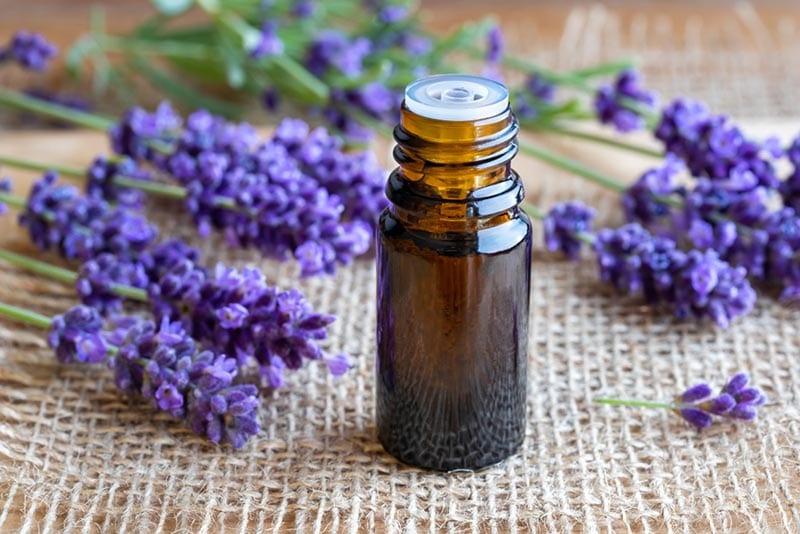
The lavender flower and oil are useful for creating pleasant scents and helpful medicines. Lavender has a soothing effect and is used for reducing stress, anxiety, depression, and pain.
If your cat is exposed to too much lavender, they may experience the signs of essential oil poisoning. Veterinary care is essential to treat the issues associated with lavender poisoning.
8. Lemon Lime and Orange
Lemon, lime, and orange essential oils are all dangerous for cats. While these citrusy oils can have plenty of benefits for humans, they should never be used on cats.
Cats that are exposed to too much lemon, lime, or orange will experience gastrointestinal irritation. This can lead to vomiting and diarrhea.
Exposed cats may also suffer from central nervous system depression, which is when normal neurological functions slow down. Long-term effects of central nervous system depression include memory issues, disorientation, and coordination problems.
9. Lemongrass
The leaves and oil from the lemongrass plant are used to make medicine. It is often used for aromatherapy and for seasoning food. Lemongrass is also a common fragrance in soap, deodorant, and cosmetics.
Keeping your cat away from anything with lemongrass is important for their health and safety. Ingesting lemongrass can lead to digestive issues, especially if the lemongrass is in the form of a concentrated essential oil. Veterinary intervention will be needed if your cat is exposed.
10. Rose

Rose oil is a popular oil for its scent and its effects. It is believed to ease pain, discomfort, and anxiety.
Rose oil should not be within reach of your cat due to the potential health consequences. Contact with rose oil can cause your cat to experience unpleasant signs such as lethargy or weakness, depression, vomiting, and diarrhea. You may even notice a concerning drop in your cat’s body temperature.
If you use an essential oil diffuser to enjoy the scent of rose oil, ensure that your cat does not have access to the room. Even a fine mist of oil could lead to serious consequences.
11. Sandalwood
Sandalwood oil is often used to ease a person’s mind, promoting a more relaxing sleep. It is a useful oil for aromatherapy and can reduce stress, increase focus, and improve mood.
If you use sandalwood in your bedroom to help you sleep, you should closely monitor your cat and ensure that they sleep elsewhere. Exposure to sandalwood could have disastrous consequences for your cat’s health.
12. Tea Tree
Tea tree oil is also referred to as melaleuca oil. For humans, tea tree oil is often used as an anti-bacterial or as a treatment for acne, dandruff, and other topical conditions.
There is an ingredient in tea tree oil known as terpenes. This chemical is dangerous to cats and has no antidote. The level of poisoning will determine the severity of the reaction, which can range from weakness to a coma.
Terpenes can be just as damaging when it is absorbed through the skin or consumed. This makes it especially dangerous for cats that self-groom, as they could absorb the oil through their skin and consume it, amplifying the symptoms.
13. Pine
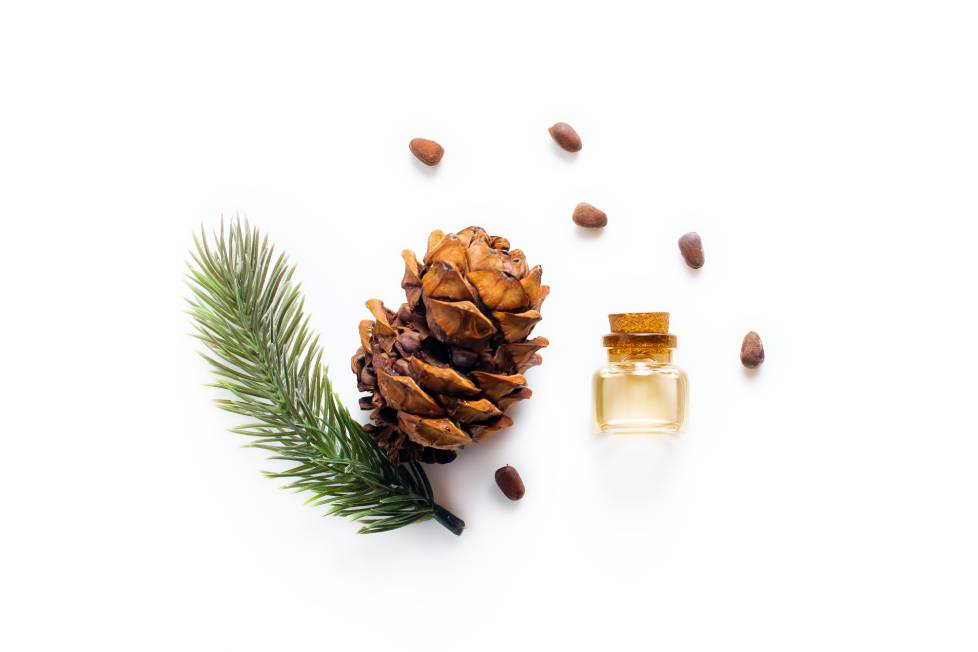
Pine oil is often used as an air freshener, for aromatherapy, and to reduce inflammation. When cats are exposed to it, they may experience signs such as redness, skin irritation, hives, dry skin, swelling, and peeling skin. Likewise, if ingested, your cat may experience gastrointestinal side effects.
This essential oil is growing in popularity, meaning there may be a higher chance that your cat could be accidentally exposed. If you have pine oil in your home, make sure to keep it separated from your cat.
14. Mint
Mint oil, or other variations of mint, are also dangerous to your cat. This includes spearmint, peppermint, chocolate mint, and many others.
Cats’ digestive systems are unable to break down the contents of various mint oils. Whether they absorb it through their skin or ingest it, your cat could experience negative health effects as a result.
Keep mint away from your cat, and reach out to your vet if you ever suspect that they have ingested mint oil.
15. Ylang-ylang
Ylang-ylang oil is said to boost a person’s mood, reduce depression and anxiety, and even combat stomach issues and headaches. It is also poisonous to cats and dogs. If you plan to use ylang-ylang oil for your own well-being, you will want to take steps to ensure that it is kept out of reach of your cat. Even inhaling the essential oil vapors could prove disastrous for your cat.
16. Thyme
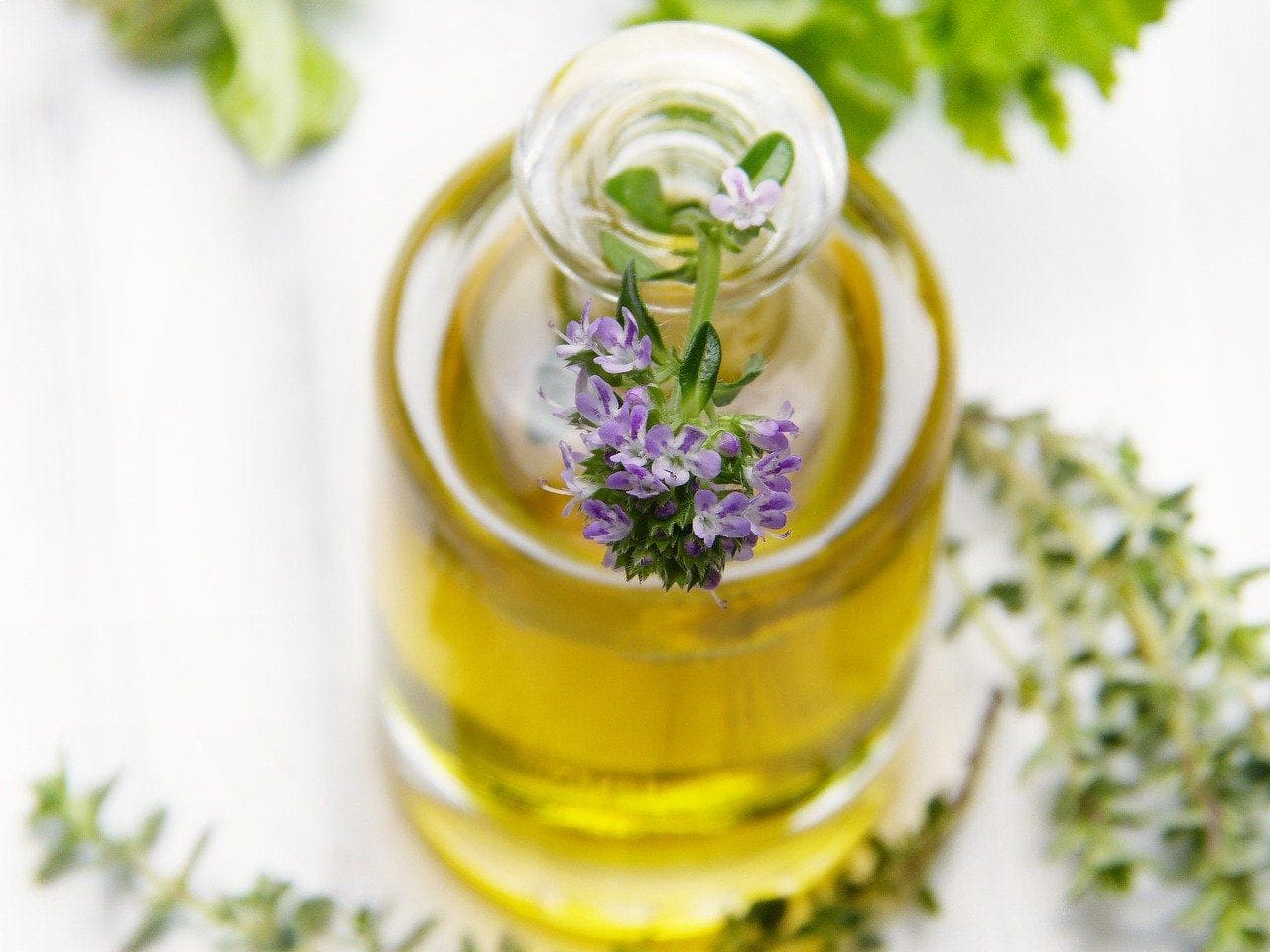
Thyme oil is used to promote heart and oral health in humans. Although it should not be used as the sole treatment for any medical condition, it provides great benefits in addition to traditional medicine. Outside of medical uses, thyme oil is also useful for cosmetics and toiletries.
If you use thyme oil for your health or in your products, you will need to keep this oil away from your cat. It can cause adverse health effects if absorbed or consumed.
Which Essential Oils Are Safe for Cats?
After reading about these essential oils that are dangerous to cats, you may wonder which ones are safe. Unfortunately, the truth is that none of them are safe for cats.
In their concentrated form, no essential oil is safe for a cat. There are some that are more or less toxic than others, but none of them are good for cats.
If you want to use essential oils in your home, you can take precautionary steps to keep your feline safe. Your cat should be kept out of a room with a diffuser, and the diffuser should not run for prolonged periods. Droplets from the diffuser can prove dangerous if your cat is exposed to too many, and they could absorb it through their skin or ingest it when self-grooming.
It is possible to still use essential oils with a pet in the home. It just requires more monitoring and forethought than a pet-free household.
Conclusion
Essential oils are dangerous for your cat, and measures should be taken to prevent any exposure. The easiest way to ensure that your cat is not exposed is to restrict the use of essential oils in your house entirely, but if that is not possible, there are ways to minimize your cat’s exposure to essential oils. Never leave essential oils uncovered or unattended, and reach out to your vet anytime you suspect that your cat may have been exposed to essential oils.
Featured Image Credit: Madeleine Steinbach, Shutterstock






